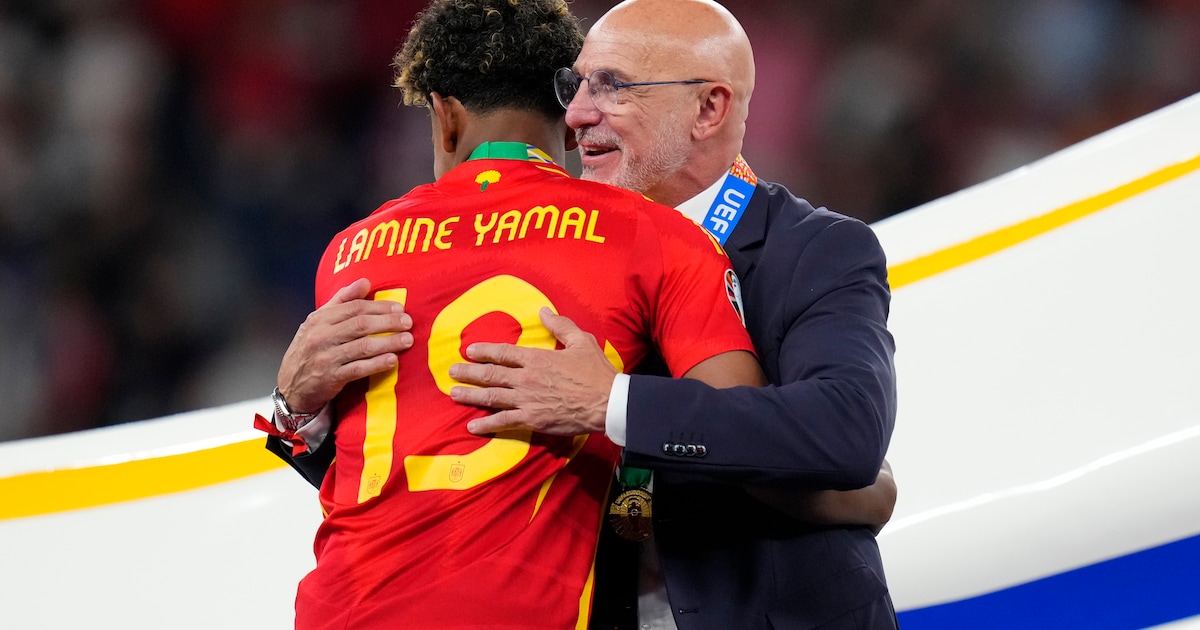
Perhaps Spain’s Euro title was not just a victory for the country itself, but also for the future of football. For a long time, this tournament was feared for a final between France and England, both successful with very defensive tactics that made this Euro painful to watch. In a sense, both countries symbolise the decline of the entertainment value of football, which is largely what the sport revolves around. That scenario was a real possibility until the semi-finals. However, the outsider in the semi-finals, attacking Spain, put an end to this by first eliminating France and beating England in the final.
The Euro Cup therefore has the winner it deserves: the best football team. The bookmakers did not take this into account in advance. They all gave England and France, but also Portugal and Germany, the host country, better chances than the Spanish. It shows that relying on one’s own strength and choosing to attack is still a more successful recipe for success than adapting to the opponent and sucking the ball out of a match.
Experience versus talent
Spain won all of its matches in this tournament, which is unique in the history of modern football. Moreover, it not only eliminated France, Germany and England in the knockout stage, but also beat defending champion Italy and 2018 World Cup runner-up Croatia in the group stage. Victories over no less than five major countries make Spain’s victory in the tournament one of the most dominant in football history.
Spain also showed at the European Championship that selection is essential for success, something that national coaches still struggle with. This was evident in Portugal (Cristiano Ronaldo), but also in the Dutch national team there was doubt as to whether there was really more quality in the dugout than on the pitch. Koeman relied on experience, while Spain coach Luis de la Fuente relied on talent. The only 16-year-old prodigy, Lamine Yamal, who had to do his homework between games, was given a key role in his team. In such circumstances, many national coaches would never have become partially dependent on a teenager.
On the left flank was 22-year-old Nico Williams, also a very talented player from Athletic Bilbao, but who does not play for a big club. This also applies to defender Robin Le Normand, who was given the chance over the late legend Sergio Ramos. They repaid their coach’s confidence and took their team to Germany. Yamal was voted the best young player of the tournament after the final.
Test of fire for the tournament
While Koeman had doubts about his starting eleven until shortly before the tournament and the French and English players were visibly uncomfortable with the defensive style of play, De La Fuente had known for months what he wanted. And above all: what suited this team. Spain’s lineup in the friendly match against Brazil last March, considered the tournament’s test, is the same as in the Euros matches. That gave De La Fuente the opportunity to fine-tune the automatisms that Spain made the most of at this Euro.
De La Fuente, a former teacher, is not a man who has made a career at top clubs. He has long coached national prospects and therefore knows exactly what strengths and rivalries Spanish players from his clubs bring to the national teams. In autonomous regions such as the Basque Country and Catalonia, people have little interest in the national team. The rivalry between Barcelona and Real Madrid is also known to have caused discord between players in the past.
Throughout the tournament, the players emphasised what a “family” De La Fuente has formed in this team. “Harmony” was a word that was mentioned a lot, also in the celebration after the final. Everyone accepted their role and put club rivalry aside. The team is a cross-section of society with Basques (Oyarzabal, Williams), Catalans (Pedri, Yamal, Cucurella) and French (Le Normand, Laporte) playing decisive roles. “De La Fuente has formed a family, that is the key to this success,” said substitute Joselu The New York Times.
Read also:
Euro moments you’ll never forget: from the most beautiful match to Ronaldo’s selfies
Our reporter Matthijs van Dam takes stock: these are his highs and lows at the Euros.



